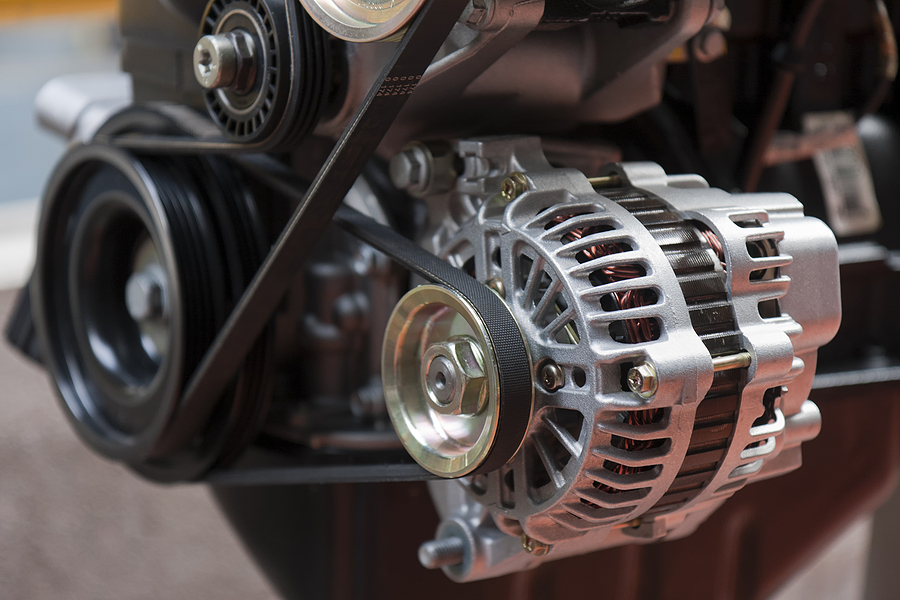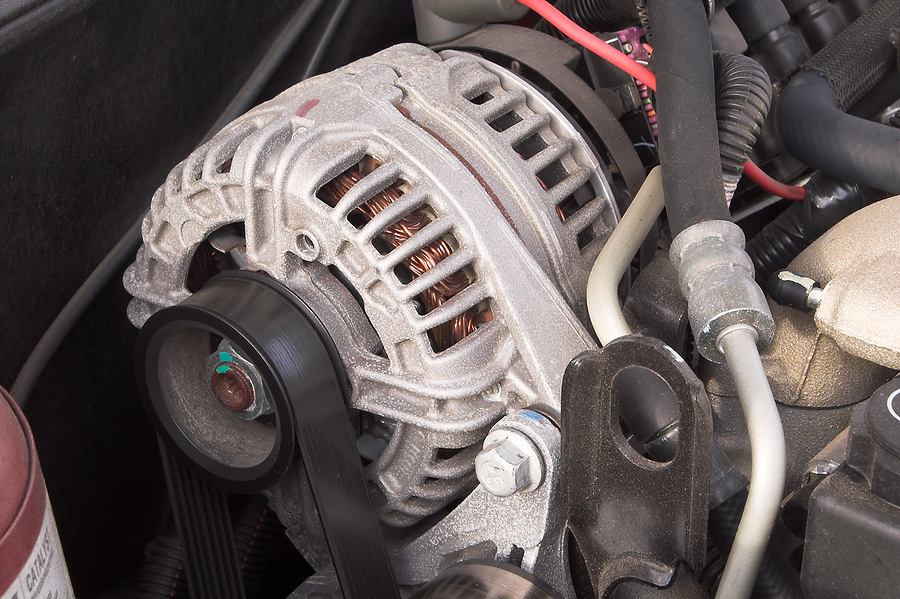Modern vehicles are powered not just by their engines but also by a complex network of sensors that ensure smooth operation and optimized performance. These car sensors monitor everything from airflow to fuel levels, helping your vehicle deliver peak efficiency and keeping you safe on the road. However, when these sensors malfunction, it can lead to performance problems, increased fuel consumption, and even potential dangers while driving.
If you’ve noticed warning lights on your dashboard or unusual car behavior, chances are one of your car’s sensors may need attention. This guide will help you understand common malfunctioning sensors, how to diagnose them, and when to seek professional help.

Common Malfunctioning Car Sensors
1. Mass Airflow (MAF) Sensor
The mass airflow sensor measures the amount of air entering your engine and adjusts the fuel injection for optimal combustion. When the MAF sensor malfunctions, you may experience poor engine performance and reduced fuel efficiency.
Common Symptoms
- Engine stalling or hesitation
- Poor fuel economy
- Check Engine Light illuminated
- Difficulty starting the car
Model-Specific Issue
Volkswagen Golf vehicles are commonly known to experience DSG transmission issues, particularly in models equipped with the 7-speed dual-clutch gearbox.
2. Oxygen (O2) Sensor
Oxygen sensors measure the level of oxygen in the exhaust gases, providing feedback to adjust the air-fuel mixture. A failing O2 sensor can lead to emissions problems and poor fuel burn.
Common Symptoms
- Increased emissions
- Rough engine idle
- Decreased gas mileage
- Check Engine Light illuminated
Model-Specific Issue
The BMW 3 Series (E46) commonly faces issues with the cooling system, particularly with the radiator and expansion tank. Upgrading to reinforced aftermarket components can help prevent frequent failures.
3. Crankshaft Position Sensor (CPS)
The crankshaft position sensor monitors the rotation speed and position of the crankshaft. It plays a crucial role in ensuring proper engine timing.
Common Symptoms
- Engine won’t start or stalls unexpectedly
- Poor acceleration or rough operation
- Misfiring or backfiring
Model-Specific Issue
BMW 3 Series models sometimes face issues with the timing chain, particularly in older diesel variants. Replacing it with high-quality OEM parts can help prevent severe engine damage and ensure reliability.
4. Camshaft Position Sensor (CMP)
This sensor monitors the camshaft’s position in relation to the crankshaft, optimizing the timing of fuel injection and spark plugs.
Common Symptoms
- Engine misfires
- Difficulty starting the car
- Poor acceleration
Model-Specific Issue
Many vehicles manufactured by Audi, especially the A4, rely on Bosch camshaft sensors for their precision. Cheap aftermarket replacements often cause inaccurate readings.
5. Throttle Position Sensor (TPS)
The TPS measures the position of the throttle valve and sends data to the engine control unit (ECU).
Common Symptoms
- Sudden hesitation or surging
- Uneven acceleration
- Difficulty changing gears in automatic transmissions
- Check Engine Light illuminated
Model-Specific Issue
Issues with the TPS are common in sporty yet reliable vehicles like the Volkswagen GTI. Regular inspections ensure early detection of problems.
Symptoms of Failing Sensors
Failing sensors often give clear signs. These include performance drops, warning lights on your dashboard, or unusual engine behavior. Be on the lookout for these telltale signs as early action can save you from expensive repairs later.
Performance Issues
- Engine stalls or runs roughly
- Decline in gas mileage
- Irregular acceleration or gear shifting
Warning Lights
- Check Engine Light is the most common indicator
- Specific fault codes that can be identified using an OBD-II scanner
Diagnostic Methods for Faulty Sensors
1. Use an OBD-II Scanner
The On-Board Diagnostics (OBD-II) scanner is your best tool for identifying sensor-related faults. Plug it into your vehicle’s port, and it reveals fault codes linked to various sensors. For example, it may show a code like P0171, indicating an issue with the O2 sensor (lean fuel mixture).
2. Perform a Visual Inspection
Sometimes, the problem isn’t with the sensor itself but with loose connections or wiring. Examine the sensor harness for visible damage or improper connections.
3. Test with a Multimeter
If you’re comfortable using tools, a multimeter can help test a sensor’s voltage or resistance. For instance, you can verify if your MAF sensor is providing accurate airflow data by comparing values against your vehicle’s manual specifications.
When to Consult a Professional Mechanic
Although DIY diagnostics can save time, some car sensor issues require advanced tools and expertise to fix. Consult a professional mechanic if you notice the following:
- Persistent warning lights despite replacing a sensor
- Multiple sensors showing fault codes simultaneously
- Electrical issues related to sensor wiring or the ECU
Experienced mechanics can use advanced diagnostic equipment and tools to determine the root cause, ensuring the problem is fully resolved.
Tips for Car Sensor Maintenance
Preventing sensor malfunctions starts with proper care and maintenance. Here are some tips to keep your sensors in top condition:
- Clean Regularly: Periodically clean your MAF and O2 sensors to remove dirt and debris that can obstruct their readings.
- Inspect Wiring: Check sensor connections and wiring harnesses for damage or loose connections.
- Replace Air Filters: A clogged air filter can damage the MAF sensor over time.
- Prompt Engine Repairs: Address engine problems (e.g., excessive oil consumption) to avoid harming sensors.
- Use Quality Parts: Opt for reliable brands like Bosch, Denso, and Delphi when replacing sensors. Avoid low-cost aftermarket parts that often fail prematurely.
- Routine Maintenance: Schedule regular maintenance checkups to spot sensor-related issues early.
In Summary
Car sensors are essential to your vehicle’s performance, fuel efficiency, and safety. Knowing how to diagnose and manage common sensor failures can save both time and money. Whether it’s a faulty O2 sensor in your Toyota Camry or a malfunctioning MAF sensor in your Ford F-150, the right diagnostic methods and tools can help pinpoint and resolve issues quickly.
If sensor troubles persist, don’t hesitate to consult a professional mechanic to ensure accurate repairs. Regular maintenance, careful cleaning, and quality sensor replacements are the ultimate key to keeping your vehicle running smoothly.
Need help with car sensor diagnostics or repairs? Schedule a diagnostic appointment today and rest assured your ride stays in prime condition.
Routine maintenance is the best way to keep your ride safe on the road. Not sure where to take your luxury German vehicle? Contact Autohaus Dierolf at 317-571-0800 for German car repair and service in Carmel, Indiana. We are German-trained mechanics who specialize in European make and model vehicles.
Related Posts:
Harnessing the Power: Troubleshooting Common Auto Electrical Issues
When to Repair vs. Replace: Making Sense of Your Car’s Engine Problems
How to Replace Spark Plugs in Your Car Like a Pro


